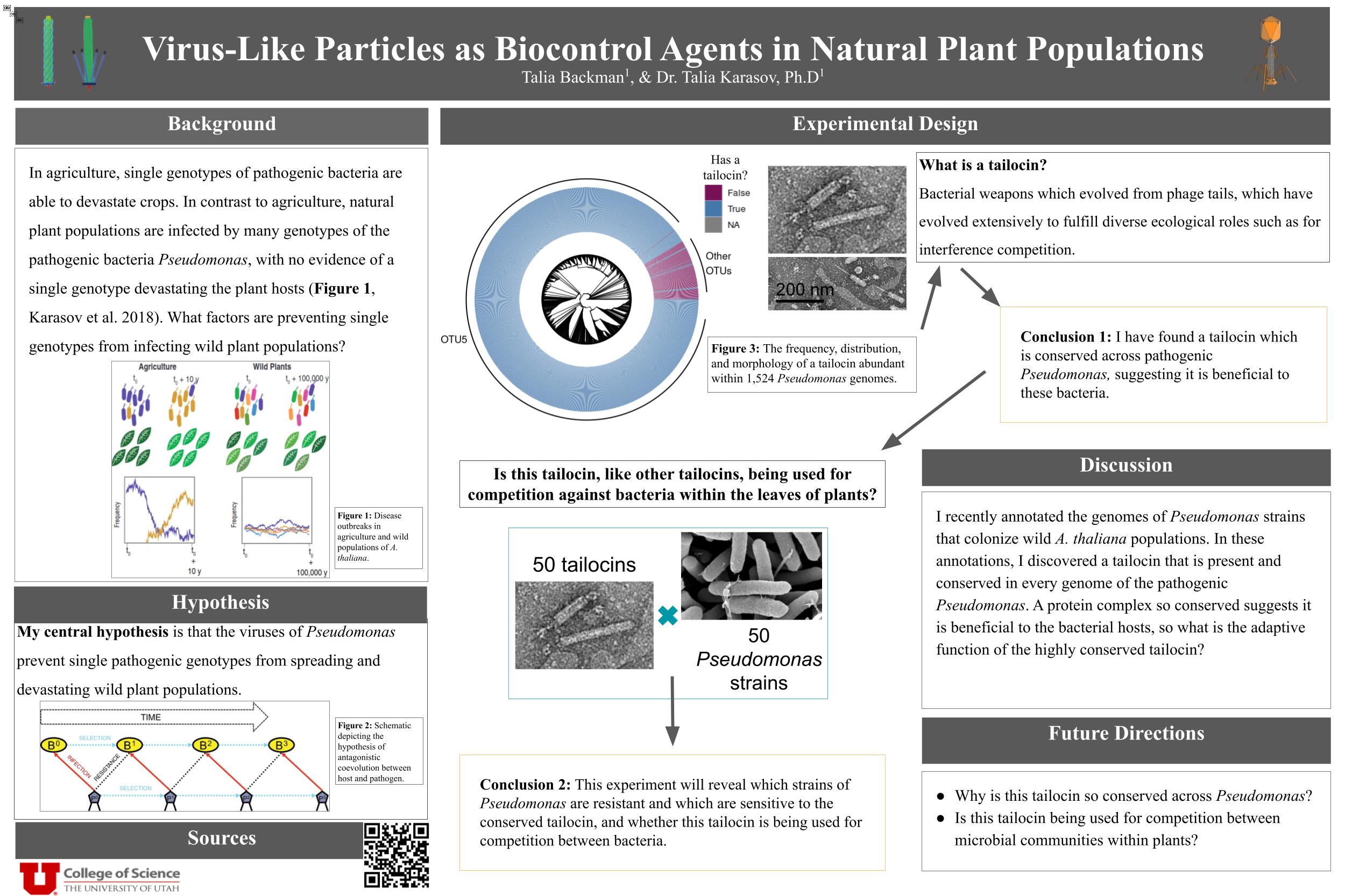The Role of Tailocins in Control of Plant Disease
–Talia Backman, Talia Karasov
[bs_collapse id=”collapse_bb86-afd7″]
[bs_citem title=”Bio” id=”citem_e610-6c22″ parent=”collapse_bb86-afd7″]
I am currently a PhD candidate in Talia Karasov’s lab. My long-term goal is to determine the environmental and genetic factors that influence the spread of plant pathogens. In my PhD research, I focus on the impact of the viruses of bacteria on the plant-associated microbiome. My objective is to determine the impact of viruses on bacterial plant pathogens and plant health in wild plant populations.
[/bs_citem]
[bs_citem title=”Abstract” id=”citem_eca8-96a7″ parent=”collapse_bb86-afd7″]
Microbial pathogens are estimated to cause 30% in food crop production. My long-term goal is to determine the environmental and genetic factors that influence the spread of plant pathogens. I focus on the impact of tailocins, evolved and domesticated prophages used by bacteria as weapons against phylogenetically closely related bacterial strains. Tailocins can be manipulated to suppress bacterial plant pathogens in lab settings, but whether they play a central role in plant disease control in natural settings is not known. My objective is to determine the impact of tailocins on bacterial plant pathogens and plant health in wild plant populations. I hypothesize that specialist tailocins will increase bacterial community diversity within the above-ground foliage of plants and limit the abundance of bacterial pathogens. Increasing diversity in the plant phyllosphere is associated with improved plant health, therefore I also hypothesize that tailocins will improve plant health through control of pathogen proliferation.
[/bs_citem]
[bs_citem title=”Narrative” id=”citem_780c-0f71″ parent=”collapse_bb86-afd7″]
Bacterial pathogens are estimated to cause annual losses of up to 30% in food crop production. The tools that scientists use to control these pathogens are decreasing in effectiveness, making a need for new tools. An idea rising in interest for biocontrol of these pathogens is using viruses which only infect bacteria to control unwanted bacterial pathogens. My research focuses on whether or not natural populations of plant pathogens are being influenced by viruses and whether or not these viruses are aiding in pathogen control.
[/bs_citem]
[/bs_collapse]

